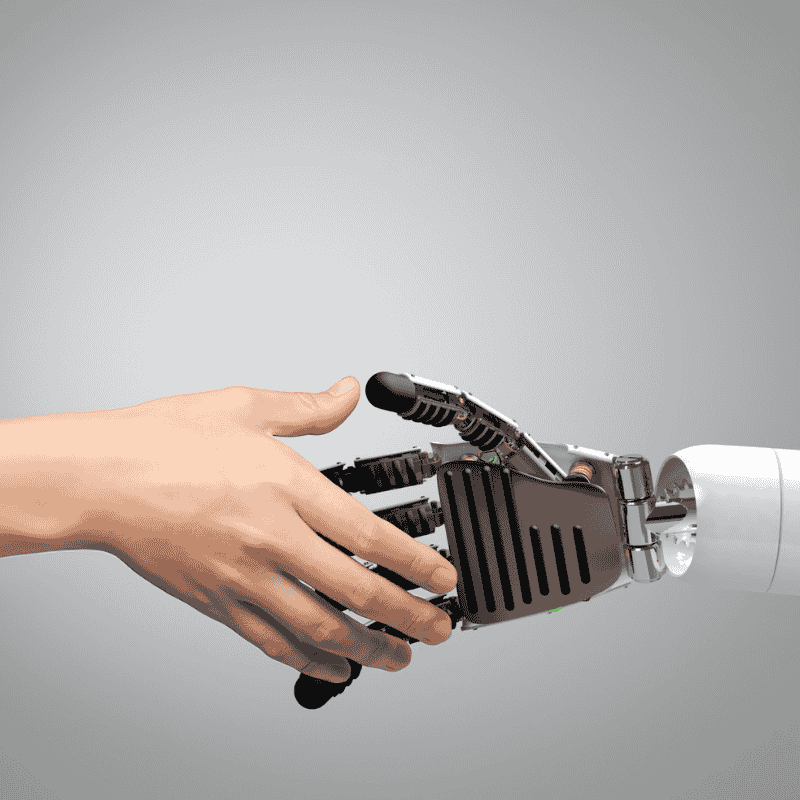Introduction and Overview of Marketing Automation AI professional tools and services
Marketing automation AI tools have become essential for businesses aiming to enhance their marketing strategies and operational efficiency. As the digital landscape evolves, these tools leverage artificial intelligence platforms to streamline processes, improve customer engagement, and drive return on investment (ROI). According to a recent report by Marketsand Markets, the global marketing automation market is projected to grow from $6.4 billion in 2020 to $14.9 billion by 2026, reflecting a compound annual growth rate (CAGR) of 15.2%. This growth underscores the increasing reliance on technology to optimize marketing efforts.
The Current Landscape of Marketing Automation AI Tools
The current market for marketing automation AI tools is characterized by rapid innovation and an expanding array of functionalities. Businesses are increasingly adopting these tools not only for email marketing but also for social media management, customer relationship management (CRM), and analytics. A survey conducted by Hub Spot revealed that 63% of companies are actively using marketing automation tools, highlighting their critical role in modern marketing strategies.
The integration of AI into these platforms allows for more sophisticated data analysis and customer segmentation. For instance, tools like Salesforce Einstein and Hub Spot utilize machine learning algorithms to analyze customer behavior patterns, enabling marketers to tailor their campaigns effectively. This level of personalization enhances user experience and fosters stronger customer relationships.
The Pivotal Role of Marketing Automation AI Tools
The pivotal role of marketing automation AI tools in contemporary business cannot be overstated. These tools significantly enhance operational efficiency by automating repetitive tasks such as email campaigns, social media postings, and lead scoring. By automating these processes, businesses can allocate resources more effectively and focus on strategic initiatives that require human insight.
Moreover, the ROI associated with implementing marketing automation AI tools is substantial. Research indicates that companies utilizing these technologies can achieve a 14.5% increase in sales productivity while reducing operational costs by up to 12%. This dual benefit makes a compelling case for businesses looking to optimize their marketing expenditures.
Preview of the Guide’s Comprehensive Scope
This guide will delve deeply into various aspects of marketing automation AI tools, providing insights into their functionalities, benefits, and implementation strategies. Key sections will include:
- Understanding Marketing Automation: A detailed explanation of what constitutes marketing automation and how AI enhances its capabilities.
- Types of Marketing Automation AI Tools: An overview of different categories such as email automation, CRM integration, and analytics platforms.
- Choosing the Right Tool: Criteria for selecting the most suitable marketing automation AI tool based on business needs.
- Implementation Strategies: Step-by-step guidance on how to effectively implement these tools within an organization.
- Measuring Success: Metrics and KPIs to evaluate the effectiveness of marketing automation efforts.
By exploring these topics comprehensively, this guide aims to equip businesses with the knowledge needed to leverage marketing automation AI tools effectively. The insights provided will not only clarify the functionalities available but also offer actionable advice tailored to various organizational contexts.
In conclusion, as we navigate through this guide on marketing automation AI tools, it is crucial to recognize their transformative potential in driving business success in an increasingly competitive landscape.
Understanding Marketing Automation AI Tools
Marketing automation AI tools have transformed the landscape of digital marketing, enabling businesses to streamline their marketing efforts through intelligent automation. This section delves into the core concepts, principles, and mechanisms underlying these tools, providing a comprehensive understanding essential for leveraging their capabilities effectively.
Core Principles of Marketing Automation AI Tools
At the heart of marketing automation AI tools lies a set of fundamental principles that guide their functionality. These principles include:
- Data-Driven Decision Making: Marketing automation AI tools utilize vast amounts of data to inform strategies and campaigns. By analyzing customer behavior, preferences, and interactions, these tools enable marketers to make informed decisions that enhance engagement and conversion rates.
- Personalization at Scale: One of the primary advantages of marketing automation AI tools is their ability to deliver personalized content to users based on their specific behaviors and preferences. This level of personalization fosters stronger connections between brands and consumers.
- Efficiency and Productivity: By automating repetitive tasks such as email campaigns, social media posting, and lead scoring, these tools free up valuable time for marketers. This efficiency allows teams to focus on strategic initiatives rather than mundane tasks.
- Integration Capabilities: Effective marketing automation AI tools seamlessly integrate with various platforms such as Customer Relationship Management (CRM) systems, content management systems (CMS), and analytics tools. This integration ensures a cohesive approach to marketing efforts.
- Continuous Learning: Many marketing automation AI tools incorporate machine learning algorithms that continuously learn from user interactions. This capability allows them to adapt strategies in real-time based on performance metrics.
Historical Context and Evolution
The evolution of marketing automation can be traced back to the early 2000s when businesses began adopting email marketing software. Initially focused on sending bulk emails, these early systems lacked the sophistication required for targeted engagement.
As technology advanced, so did the capabilities of these tools. The introduction of CRM systems allowed marketers to store customer data more effectively, leading to improved segmentation and targeting strategies. By the late 2010s, artificial intelligence began playing a significant role in enhancing these systems.
Today’s marketing automation AI tools leverage advanced algorithms and analytics to provide insights that were previously unattainable. According to industry reports, approximately 75% of companies now use some form of marketing automation technology, reflecting its critical role in modern business strategies.
Key Components of Marketing Automation AI Tools
Understanding the key components of marketing automation AI tools is essential for maximizing their potential. The following list outlines these components along with their functions:
- Email Marketing Automation: Automates the process of sending targeted emails based on user behavior or predefined schedules. It enhances engagement through personalized messaging.
- Lead Scoring: Assigns scores to leads based on their interactions with your brand (e.g., website visits, email opens). This helps prioritize leads for sales follow-up.
- Customer Segmentation: Groups customers based on shared characteristics or behaviors to tailor marketing messages effectively.
- Analytics and Reporting: Provides insights into campaign performance through metrics such as open rates, click-through rates (CTR), and conversion rates.
- Social Media Management: Automates posting schedules across various platforms while providing analytics on engagement levels.
- Content Management: Facilitates the creation and distribution of content tailored to specific audience segments or stages in the customer journey.
- Chatbots and Conversational Interfaces: Utilizes natural language processing frameworks (NLP) to interact with customers in real-time, answering queries or guiding them through processes.
- A/B Testing Tools: Enables marketers to test different versions of content or campaigns to determine which performs better based on user response.
Underlying Mechanisms and Theoretical Foundations
The effectiveness of marketing automation AI tools relies heavily on several underlying mechanisms:
- Machine Learning Algorithms: These algorithms analyze historical data patterns to predict future behaviors and outcomes. For example, they can identify which types of content are most likely to engage specific segments based on past interactions.
- Natural Language Processing (NLP): NLP enables chatbots within marketing automation systems to understand user inquiries accurately and respond appropriately, enhancing customer experience through conversational interfaces.
- Predictive Analytics: By leveraging statistical algorithms and machine learning techniques, predictive analytics forecasts future trends based on current data patterns—allowing marketers to proactively adjust strategies accordingly.
- Behavioral Targeting: This mechanism uses data collected from user interactions across various channels (websites, social media) to deliver personalized experiences that resonate with individual users’ needs and preferences.
In summary, understanding the core concepts, historical evolution, key components, and underlying mechanisms behind marketing automation AI tools is crucial for businesses aiming to enhance their digital marketing strategies effectively. By leveraging these insights alongside practical applications outlined in this guide, organizations can position themselves competitively in an increasingly automated marketplace while ensuring they meet evolving consumer expectations efficiently.
Practical Implementation of Marketing Automation AI Tools
Implementing marketing automation AI tools requires a structured approach to ensure effectiveness and alignment with business goals. This section provides a detailed, implementation services-by-step guide to deploying these tools, addressing common challenges, and offering actionable solutions.
Step-by-Step Marketing Automation AI Tools Deployment
- Define Objectives and KPIs
Start by establishing clear objectives for your marketing automation efforts. Identify specific Key Performance Indicators (KPIs) that will help measure success. For example, objectives might include increasing lead generation by 30% or improving email open rates by 15%. Research indicates that companies with defined goals are 376% more likely to achieve successful outcomes.
- Select the Right Marketing Automation AI Tool
Evaluate various marketing automation AI tools based on your defined objectives. Consider factors such as ease of use, integration capabilities with existing systems, and specific features like predictive analytics or customer segmentation. Tools like Hub Spot and Marketo offer comprehensive functionalities but may differ in pricing and scalability. Conduct a comparative analysis to determine which tool aligns best with your needs.
- Develop a Comprehensive Implementation Plan
Create an implementation plan that outlines timelines, resources required, and key milestones. A typical implementation timeline can range from three to six months, depending on the complexity of the tool and the size of your organization. Allocate resources effectively, including team members responsible for overseeing the deployment process.
- Data Integration and Migration
Ensure that your selected marketing automation AI tool integrates seamlessly with existing databases and Customer Relationship Management (CRM) systems. Data migration is critical; clean and organize data before transferring it to avoid complications later. Studies show that poor data quality can hinder marketing efforts significantly.
- Customize Workflows and Campaigns
Utilize the capabilities of your marketing automation AI tools to create customized workflows tailored to different customer segments. For instance, set up automated email campaigns triggered by user behavior or engagement levels. This personalization enhances customer experience and increases conversion rates.
- Testing and Optimization
Before fully launching your marketing automation campaigns, conduct A/B testing on various elements such as subject lines, content formats, and call-to-action buttons. This testing phase allows you to gather data on what resonates best with your audience, enabling you to optimize campaigns for maximum effectiveness.
- Training Team Members
Provide comprehensive training for team members who will be using the marketing automation AI tools regularly. Familiarize them with the functionalities of the tool, emphasizing best practices for campaign management and data analysis. Continuous education ensures that staff remains adept at leveraging new features as they become available.
- Monitor Performance Metrics
After launching campaigns, continuously monitor performance metrics against the established KPIs. Use analytics dashboards provided by the marketing automation AI tools to gain insights into campaign performance in real-time. Regularly review these metrics to identify areas for improvement or adjustment.
- Iterate Based on Feedback
Gather feedback from both team members and customers regarding their experiences with automated campaigns. Use this feedback to refine strategies and improve future implementations of marketing automation AI tools.
Common Challenges in Implementing Marketing Automation AI Tools
While implementing marketing automation AI tools can yield significant benefits, several challenges may arise:
- Resistance to Change: Employees may resist adopting new technologies due to fear of job displacement or unfamiliarity with new processes.
– Solution: Foster a culture of innovation by highlighting how these tools enhance productivity rather than replace jobs.
- Data Quality Issues: Poor data quality can lead to ineffective targeting and wasted resources.
– Solution: Invest time in cleaning existing data before migration and establish ongoing data management practices.
- Integration Difficulties: Integrating new tools with legacy systems can pose technical challenges.
– Solution: Collaborate closely with IT teams during the integration phase to ensure compatibility across platforms.
Resource Requirements
Implementing marketing automation AI tools involves various resource allocations:
- Financial Resources: Budget for software licensing fees, potential training costs, and any additional technology investments required for integration.
- Human Resources: Designate a project manager along with a cross-functional team comprising IT specialists, marketers, and sales representatives.
- Time Investment: Expect a commitment of several months for full implementation, including planning stages through post-launch optimization efforts.
Conclusion
The deployment of marketing automation AI tools is a multifaceted process that demands careful planning and execution. By following this structured approach—defining objectives, selecting appropriate tools, customizing workflows, training staff, monitoring performance metrics—you can effectively harness the power of these technologies to enhance your marketing efforts significantly.
In contrast to many existing guides that provide only theoretical insights or high-level overviews (such as those from Hub Spot or Neil Patel), this guide emphasizes actionable steps tailored specifically for practical implementation in real-world scenarios—ensuring you are well-equipped to navigate common challenges while maximizing ROI from your chosen marketing automation AI tools.
By adhering closely to these guidelines while integrating continuous feedback loops into your processes, you position your organization not only for immediate success but also for sustained growth in an increasingly competitive landscape driven by technological advancements in marketing automation.
Marketing Automation AI Tools: An In-Depth Analysis
Marketing automation AI tools are transforming the landscape of digital marketing by enhancing efficiency, personalization, and data-driven decision-making. This section provides a detailed examination of various tools, platforms, and technologies available in the market, alongside their real-world applications across different industries.
Top Marketing Automation AI Tools for Business
Several marketing automation AI tools stand out due to their robust features and capabilities. Below is a comparative analysis of some of the leading platforms:
1. Hub Spot
Overview: Hub Spot offers a comprehensive suite of marketing automation tools that integrate seamlessly with its CRM system.
- Pros:
– User-friendly interface.
– Extensive educational resources and community support.
– Strong integration capabilities with third-party applications.
- Cons:
– Higher pricing tiers can be costly for small businesses.
– Some advanced features may require technical expertise to implement effectively.
Real-World Application: A mid-sized e-commerce company utilized Hub Spot’s marketing automation AI tools to segment its customer base effectively. As a result, they achieved a 30% increase in email open rates through personalized content targeting.
2. Marketo Engage
Overview: Marketo Engage specializes in lead management and provides advanced analytics for performance tracking.
- Pros:
– Highly customizable workflows.
– Strong focus on B2B marketing strategies.
– Comprehensive reporting features that enable data-driven decisions.
- Cons:
– Steeper learning curve compared to other platforms.
– Pricing can be prohibitive for smaller organizations.
Real-World Application: A technology firm implemented Marketo Engage to automate its lead nurturing process. This led to a 40% increase in qualified leads over six months, demonstrating the tool’s effectiveness in optimizing sales funnels.
3. Active Campaign
Overview: Active Campaign combines email marketing with CRM functionalities, making it suitable for small to medium-sized businesses.
- Pros:
– Affordable pricing plans.
– Intuitive automation builder for creating complex workflows easily.
– Excellent customer support and training resources.
- Cons:
– Limited advanced analytics compared to larger competitors.
– Some users report occasional glitches in the platform.
Real-World Application: A local service provider used Active Campaign to streamline its customer communication strategy. The result was a significant reduction in response time, enhancing customer satisfaction scores by over 25%.
Tool Selection Criteria
When evaluating marketing automation AI tools, businesses should consider several key criteria:
- Integration Capabilities: Ensure the tool can seamlessly integrate with existing systems such as CRMs or e-commerce platforms.
- User Experience: A user-friendly interface can significantly reduce training time and improve adoption rates among team members.
- Scalability: Choose a solution that can grow with your business needs, offering additional features or higher-tier plans as required.
- Support and Resources: Access to robust customer support and educational materials can facilitate smoother implementation and ongoing usage.
- Cost Efficiency: Analyze pricing structures carefully to ensure they align with your budget while providing necessary features without unnecessary expenses.
Real-World Applications Across Industries
Marketing automation AI tools have found diverse applications across various sectors:
E-Commerce
In the e-commerce sector, businesses leverage these tools for personalized product recommendations based on user behavior data. For instance, an online retailer used machine learning algorithms within their marketing automation platform to analyze past purchase patterns, resulting in a notable increase in upsell opportunities—boosting average order values by approximately 20%.
Healthcare
Healthcare providers utilize marketing automation AI tools to manage patient communications effectively. Automated appointment reminders and follow-up emails not only enhance patient engagement but also improve operational efficiency by reducing no-show rates significantly—by up to 30% in some cases.
Education
Educational institutions employ these tools for student recruitment campaigns. By automating outreach efforts based on prospective students’ interactions with digital content, universities have reported increased enrollment rates by tailoring messaging that resonates with specific demographics—leading to higher conversion rates from inquiries to enrollments.
Conclusion
The landscape of marketing automation AI tools is rich with options tailored for various business needs across multiple industries. By understanding the strengths and weaknesses of each tool and applying selection criteria effectively, organizations can harness these technologies to enhance their marketing strategies significantly. As businesses continue to adopt these solutions, they will likely see improvements not only in operational efficiency but also in overall customer engagement and satisfaction levels.
Advanced Techniques and Emerging Trends in Marketing Automation AI Tools
The landscape of marketing automation is rapidly evolving, driven by advancements in artificial intelligence (AI) technologies. As businesses increasingly recognize the need for efficiency and personalization in their marketing efforts, marketing automation AI tools have emerged as essential components of modern marketing strategies. This section explores sophisticated techniques, advanced methodologies, and emerging trends that are shaping the future of these tools.
Sophisticated Techniques in Marketing Automation AI Tools
Predictive Analytics and Customer Segmentation
Predictive analytics is a cornerstone of effective marketing automation. By leveraging historical data, AI algorithms can forecast customer behavior and preferences, allowing marketers to tailor their strategies accordingly. For instance, tools like Hub Spot utilize predictive analytics to segment audiences based on potential engagement levels. This segmentation enables targeted campaigns that resonate more deeply with specific customer groups, thereby increasing conversion rates.
Research indicates that companies employing predictive analytics in their marketing strategies see an average increase of 10-15% in sales. This technique not only enhances customer targeting but also optimizes resource allocation by focusing efforts on high-potential leads.
Dynamic Content Personalization
Dynamic content personalization is another advanced technique facilitated by marketing automation AI tools. These tools analyze user behavior in real-time to deliver personalized content across various channels. For example, platforms like Marketo allow marketers to create dynamic email campaigns that adapt content based on user interactions.
Studies show that personalized emails have a 29% higher open rate compared to generic messages. By utilizing AI-driven insights to customize content dynamically, businesses can significantly enhance user engagement and drive conversions.
Advanced Methodologies for Implementation
Integration with CRM Systems
Effective integration of marketing automation AI tools with Customer Relationship Management (CRM) systems is crucial for maximizing their potential. This integration allows for seamless data flow between platforms, enabling marketers to leverage comprehensive customer insights for more informed decision-making.
For instance, Salesforce’s Einstein Analytics integrates with various marketing automation tools to provide actionable insights derived from customer interactions across multiple touchpoints. This holistic view empowers marketers to craft strategies that align closely with customer needs and behaviors.
Multi-Channel Campaign Management
As consumer touchpoints multiply, managing multi-channel campaigns has become increasingly complex. Advanced marketing automation AI tools facilitate this by providing centralized dashboards that track performance across different channels—email, social media, web, and more.
Tools like Active Campaign offer features that allow marketers to design cohesive multi-channel campaigns while analyzing performance metrics in real-time. This capability ensures that marketing efforts are synchronized and optimized based on channel-specific performance data.
Emerging Trends Shaping the Future of Marketing Automation AI Tools
Increased Use of Natural Language Processing (NLP)
Natural Language Processing (NLP) is revolutionizing how businesses interact with customers through automated communication channels. By utilizing NLP capabilities, marketing automation AI tools can understand and respond to customer inquiries more effectively than ever before.
For example, chatbots powered by NLP can engage customers in meaningful conversations while collecting valuable data about their preferences and pain points. According to industry reports, businesses using chatbots see a 30% increase in lead generation due to improved responsiveness and engagement.
The Rise of No-Code Solutions
The demand for no-code solutions is growing as organizations seek to empower non-technical users to leverage marketing automation AI tools effectively. These platforms enable marketers to create TechnoBelieve.com/workflow-automation/”>workflow automation solutions without needing extensive programming knowledge.
Tools such as Zapier exemplify this trend by allowing users to connect various applications effortlessly through simple interfaces. By democratizing access to automation capabilities, businesses can enhance productivity and streamline operations without relying heavily on IT resources.
Future Developments: Predictions for Marketing Automation AI Tools
Enhanced Data Privacy Features
As data privacy regulations tighten globally, future iterations of marketing automation AI tools will likely incorporate enhanced privacy features. These developments will ensure compliance with regulations such as GDPR while maintaining the effectiveness of targeted marketing strategies.
Experts recommend adopting privacy-first approaches in tool development that prioritize user consent and data protection without sacrificing personalization capabilities. This balance will be critical for maintaining consumer trust while leveraging data-driven insights.
Greater Emphasis on Ethical AI Practices
The ethical implications of using AI in marketing are becoming increasingly prominent as consumers demand transparency regarding how their data is used. Future advancements will likely focus on developing ethical frameworks around the deployment of marketing automation AI tools.
Organizations will need to establish guidelines that govern the responsible use of AI technologies while ensuring fairness and accountability in automated decision-making processes. As noted by industry
Conclusion and Key Takeaways on Marketing Automation AI Tools
As the landscape of digital marketing continues to evolve, marketing automation AI tools have emerged as essential components for businesses aiming to enhance efficiency, improve customer engagement, and drive revenue growth. This guide has explored the multifaceted benefits of these tools, their applications across various marketing channels, and the strategic considerations necessary for successful implementation. Below are the key takeaways and actionable steps to harness the full potential of marketing automation AI tools.
Key Takeaways
- Understanding Core Benefits: Marketing automation AI tools streamline repetitive tasks, enabling marketers to focus on strategy and creativity. They enhance lead scoring, personalize customer interactions, and provide valuable insights through data analytics.
- Diverse Applications: These tools can be applied across multiple channels including email marketing, social media management, content marketing, and customer relationship management (CRM). Each application offers unique advantages that can be tailored to specific business needs.
- Choosing the Right Tool: Selecting an appropriate marketing automation AI tool requires a thorough assessment of your business objectives, budget constraints, and existing technology stack. Consider factors such as ease of integration, scalability, user interface, and customer support.
- Implementation Strategies: Successful deployment of marketing automation AI tools involves careful planning. Establish clear goals, train your team adequately, and continuously monitor performance metrics to ensure alignment with business objectives.
- Measuring ROI: It is crucial to define key performance indicators (KPIs) that reflect the effectiveness of your marketing automation efforts. Regularly analyze these metrics to gauge success and make informed adjustments to your strategies.
- Staying Updated with Trends: The field of marketing automation is rapidly evolving due to advancements in artificial intelligence and machine learning. Staying informed about emerging trends will help businesses maintain a competitive edge.
Your Next Steps to Marketing Automation AI Tools Mastery
- Conduct a Needs Assessment: Evaluate your current marketing processes to identify areas where automation can yield significant improvements. This assessment should include an analysis of workflows that are time-consuming or prone to errors.
- Research Available Tools: Utilize resources such as comparison guides or expert reviews to explore various marketing automation AI tools available in the market today. Focus on features that align with your identified needs.
- Pilot Testing: Before fully committing to a specific tool, consider running a pilot program with a small segment of your audience or within a limited scope of your operations. This approach allows you to assess functionality without extensive upfront investment.
- Develop a Training Plan: Ensure that your team is well-equipped to utilize the chosen tools effectively by providing comprehensive training sessions. This investment in human capital will maximize the return on your technology investments.
- Implement Feedback Loops: Create mechanisms for collecting feedback from users within your organization regarding their experiences with the tools implemented. Use this feedback for continuous improvement and optimization of processes.
- Monitor Industry Developments: Subscribe to industry publications or join professional networks focused on digital marketing innovations. Engaging with thought leaders will provide insights into best practices and future directions in marketing automation.
Final Insights
In conclusion, leveraging marketing automation AI tools is not merely about adopting new technologies; it is about transforming how businesses engage with customers and optimize their operations for sustained growth. By following these strategic recommendations and remaining adaptable in an ever-changing digital landscape, organizations can position themselves for long-term success in their marketing endeavors.
For further insights into specific applications or advanced strategies related to marketing automation AI tools, consider exploring our additional resources linked throughout this guide:
- How can AI automation streamline marketing campaigns?
- What are the best AI automation tools for small businesses?
- How does AI optimize my email marketing campaigns?
By taking these steps now, you will not only enhance your understanding but also significantly improve your organization’s ability to leverage technology effectively in its marketing strategy moving forward.
Frequently Asked Questions about Marketing Automation AI Tools
Q: What are marketing automation AI tools, and how do they work?
A: Marketing automation AI tools are software solutions that utilize artificial intelligence to automate marketing tasks. They analyze data patterns to optimize campaigns, segment audiences, and personalize content delivery. By integrating machine learning algorithms, these tools enhance decision-making processes and improve overall marketing efficiency.
Q: How can small businesses benefit from marketing automation AI tools?
A: Small businesses can leverage marketing automation AI tools to streamline their marketing efforts without requiring extensive resources. These tools enable targeted email campaigns, social media scheduling, and customer segmentation, allowing small teams to operate more effectively. Additionally, they provide insights into customer behavior, helping businesses tailor their strategies for better engagement.
Q: What features should I look for in marketing automation AI tools?
A: When evaluating marketing automation AI tools, consider features such as predictive analytics, customer segmentation capabilities, and integration with existing platforms. Look for user-friendly interfaces and customizable templates that facilitate campaign creation. Additionally, robust reporting features are essential for measuring campaign performance and ROI.
Q: What challenges might organizations face when implementing marketing automation AI tools?
A: Organizations may encounter several challenges when implementing marketing automation AI tools. Common issues include data integration difficulties, resistance to change among staff, and the need for ongoing training. Additionally, ensuring data privacy compliance is crucial as organizations collect and analyze customer information.
Q: How do marketing automation AI tools enhance customer engagement?
A: Marketing automation AI tools enhance customer engagement by delivering personalized content based on user behavior and preferences. They can automate follow-up communications and recommend products or professional automation services tailored to individual needs. This level of personalization fosters stronger relationships between brands and customers.
Q: Are there specific industries that benefit more from marketing automation AI tools?
A: While all industries can benefit from marketing automation AI tools, sectors like e-commerce, healthcare, and finance see significant advantages. E-commerce companies use these tools for personalized recommendations and abandoned cart recovery. Healthcare providers utilize them for patient outreach and appointment reminders while financial institutions leverage them for targeted promotions.
Q: How do I measure the effectiveness of my marketing automation AI tools?
A: To measure the effectiveness of your marketing automation AI tools, track key performance indicators (KPIs) such as conversion rates, email open rates, and customer acquisition costs. Utilize built-in analytics dashboards to assess campaign performance over time. Regularly reviewing these metrics will help refine strategies and improve outcomes.
Q: Can I integrate marketing automation AI tools with my existing CRM system?
A: Yes, most marketing automation AI tools offer integration capabilities with popular CRM systems. This integration allows for seamless data sharing between platforms, enhancing customer insights and streamlining workflows. Ensure compatibility during the selection process to maximize the benefits of both systems.
Q: What are some common misconceptions about marketing automation AI tools?
A: A common misconception is that marketing automation eliminates the need for human involvement in campaigns. In reality, these tools augment human capabilities by providing insights and automating repetitive tasks while still requiring strategic oversight. Another misconception is that these solutions are only suitable for large enterprises; however, many options cater specifically to small businesses.
Q: How can I ensure a successful implementation of marketing automation AI tools in my organization?
A: To ensure successful implementation of marketing automation AI tools, start with a clear strategy outlining your goals and objectives. Involve stakeholders from various departments to gain buy-in and address concerns early on. Provide comprehensive training sessions for staff to familiarize them with the new system while continuously monitoring progress to make necessary adjustments along the way.
By addressing these frequently asked questions about marketing automation AI tools comprehensively, this section aims to clarify common uncertainties while providing actionable insights relevant to






0 Comments